This article was co-authored by Zora Degrandpre, ND. Dr. Zora Degrandpre is a Natural Health Doctor and Licensed Naturopathic Physician in Vancouver, Washington. She is a grant reviewer for the National Institutes of Health and the National Center for Complementary and Alternative Medicine. She received her ND from the National College of Natural Medicine in 2007.
There are 10 references cited in this article, which can be found at the bottom of the page.
wikiHow marks an article as reader-approved once it receives enough positive feedback. In this case, 100% of readers who voted found the article helpful, earning it our reader-approved status.
This article has been viewed 249,278 times.
Cold sores are harmless, but this doesn’t mean they aren’t annoying and painful. You’re not alone if you want to get rid of yours as soon as possible. Luckily, cold sores usually clear up on their own without any treatment, but this could take 2-4 weeks.[1] If you want to speed this along, you have a few options. Antiviral creams like Abreva are the recommended treatment, but some home treatments might work as well. Most of these are harmless, so you can try them for yourself and see if they help.
Steps
Remedies that Might Work
The internet is full of home remedies for cold sores, so you’re not alone if you’re wondering which ones actually work. While many don’t, there are a few that do have some success in treating cold sores. These might not be as effective as a conventional cream like Abreva, but could still help. Try them out for yourself to see if they work for you.
-
1Try rhubarb and sage cream. These 2 ingredients together may also be effective in clearing up cold sores.[2] It might even be about as effective as antiviral creams. Try getting a cream containing both and apply to the cold sore until it clears up.[3]
- Sage can also fight cold sores on its own, but the combination with rhubarb tends to work better.
-
2Rub kanuka honey onto the sore. You might not think of honey as a medical treatment, some types of honey are very medicinal. This particular type of honey from New Zealand shows some success in clearing up cold sores. When the sore starts, try dabbing some kanuka honey onto the area 5 times a day for 8-9 days.
- Other types of honey might not work as well as kanuka, so make sure you use this type. You should be able to get it at supermarkets or health food stores.
Advertisement -
3Apply aloe vera gel to the sore. Aloe vera is a popular remedy for all kinds of injuries, and it could help with cold sores as well. Try applying a 0.2-5% concentration of aloe vera gel onto the sore every day to see if this helps it clear up.[4]
-
4Try lemon balm oil. This essential oil shows some success in fighting the herpes virus and reducing cold sores.[5] Try applying a topical product containing lemon balm oil to see if this works for you.
- Lemon balm might also work on outbreaks of genital herpes. However, talk to your doctor before using it on your genitals.[6]
-
5Keep the cold sore moisturized. This might not get rid of the sore quickly, but it’s important for the healing process. Moisturizing prevents the sore from drying out and flaking.[7] This could help the sore heal better. Try using a lip balm with zinc oxide for the best results.[8]
- It’s also helpful to use lip balm with sunblock to protect the sore from the sun.
- If you use a lip balm or chapstick tube while you have a cold sore, get rid of it after the infection clears up. Otherwise, you could give yourself another infection if you use it again.
-
6Try some other essential oils like peppermint or rosemary. Besides lemon balm, a few other essential oils show some success in fighting cold sores. These include peppermint, rosemary, thyme, sage, and prunella. Try applying diluted essential oils to the sore to see if it helps.[9]
- Don't use pure essential oils, as they can be toxic. Similarly, don’t get any of the oils in your mouth because they could be poisonous if you swallow them.
-
7Take lysine supplements. This is an amino acid that could help heal cold sores when taken by mouth. There is no strong evidence that it works, but you can try it to see as long as your doctor says it's safe. Try taking a supplement with 3 g per day for 5 days.[10] This might boost the healing process and clear the sore.
- You can also get more lysine in your diet from meat and chicken, fish, eggs, dairy, wheat germ, and avocados.
- Ask your doctor before you start taking lysine supplements. It could cause problems, especially if you have a cardiovascular or gallbladder disease.
Relieving Cold Sore Symptoms
Whether you use medical or home treatments on the cold sore, it’ll still take some time until it heals completely. In the meantime, you probably want to reduce the pain and discomfort that you’re feeling. Luckily, some home treatments can help with this as well. Try these tips to make yourself feel better and avoid spreading the sore until it clears up.
-
1Numb the pain with a cold compress. Even if a cold sore is healing well, it can be pretty uncomfortable until it clears up completely. You can relieve the pain with ice or a cold, wet towel. Try holding one of these against the cold sore for 20 minutes at a time 3 times a day. This won’t really heal the sore, but it could reduce the redness and swelling to make it less noticeable.[11]
- If you use a towel or compress, wash it right away or you could spread the virus to others.
-
2Have cold food and drinks. This might make eating more comfortable for you.[12] Try sticking with cold foods or wait for your food to cool down enough before eating it to avoid aggravating the sore.
-
3
-
4Don’t pick or touch the sore. It’s probably tempting to touch to play with the sore. Don’t do this! It could irritate the sore and make it take longer to heal. Leave it alone let your body take care of the healing process.[15]
- Cold sores are also contagious, so you risk spreading the virus around if you keep touching it.
-
5Wash your hands after touching the sore. Whenever you touch the sore, either accidentally or to apply medicine, you can get some of the herpes virus on your hands. You might spread it to other people or other parts of your body if you don’t wash your hands, so make sure to do so every time you touch the sore.[16]
- Cold sores are usually more contagious on your first outbreak, so take extra care to wash your hands often and avoid spreading it.[17]
-
6Reduce stress to make breakouts less frequent. This might not get rid of your current sore, but stress tends to trigger cold sore outbreaks. Reducing your overall stress might help you avoid outbreaks in the future.[18]
- Mindfulness exercises like meditation, deep breathing, or yoga tend to help reduce stress, so try to make some time for one of these each day.
- Doing things you enjoy can also reduce your stress, so remember to leave time for your hobbies as well.
Medical Takeaways
Cold sores are harmless, but this doesn’t make them any less annoying. The good news is that not only do they usually heal on their own, but you can speed the process with some home treatments. These might not work as well as medical treatments like Abreva, but do show some success. In any case, your cold sore should clear up in a few weeks and you’ll forget it was even there!
Expert Q&A
-
QuestionCan a regular store-bought lemon placed on the cold sore help it go away in any way?
 Zora Degrandpre, NDDr. Zora Degrandpre is a Natural Health Doctor and Licensed Naturopathic Physician in Vancouver, Washington. She is a grant reviewer for the National Institutes of Health and the National Center for Complementary and Alternative Medicine. She received her ND from the National College of Natural Medicine in 2007.
Zora Degrandpre, NDDr. Zora Degrandpre is a Natural Health Doctor and Licensed Naturopathic Physician in Vancouver, Washington. She is a grant reviewer for the National Institutes of Health and the National Center for Complementary and Alternative Medicine. She received her ND from the National College of Natural Medicine in 2007.
Natural Health Doctor No-- lemon balm is a different plant. You don't want to use lemon (the fruit) because the acid would irritate the cold sore. But, lemon balm is a plant-- and using lemon balm in an oil-base can help heal a cold sore.
No-- lemon balm is a different plant. You don't want to use lemon (the fruit) because the acid would irritate the cold sore. But, lemon balm is a plant-- and using lemon balm in an oil-base can help heal a cold sore.
References
- ↑ https://my.clevelandclinic.org/health/diseases/21136-cold-sores
- ↑ https://www.stclair.org/services/mayo-clinic-health-information/diseases-and-conditions/CON-20370997/
- ↑ https://pubmed.ncbi.nlm.nih.gov/11799306/
- ↑ https://pubmed.ncbi.nlm.nih.gov/26966709/
- ↑ https://www.mountsinai.org/health-library/herb/lemon-balm
- ↑ https://www.mountsinai.org/health-library/herb/lemon-balm
- ↑ https://health.clevelandclinic.org/heres-how-you-can-get-rid-of-a-cold-sore-fast/
- ↑ https://www.stclair.org/services/mayo-clinic-health-information/diseases-and-conditions/CON-20370997/
- ↑ https://pubmed.ncbi.nlm.nih.gov/17091431/
- ↑ https://www.ncbi.nlm.nih.gov/pmc/articles/PMC6419779/
- ↑ https://myhealth.alberta.ca/Health/aftercareinformation/pages/conditions.aspx?hwid=uh3098
- ↑ https://kidshealth.org/en/teens/cold-sores.html
- ↑ https://myhealth.alberta.ca/Health/aftercareinformation/pages/conditions.aspx?hwid=uh3098
- ↑ https://my.clevelandclinic.org/health/diseases/21136-cold-sores
- ↑ https://health.clevelandclinic.org/heres-how-you-can-get-rid-of-a-cold-sore-fast/
- ↑ https://kidshealth.org/en/teens/cold-sores.html
- ↑ https://myhealth.alberta.ca/Health/aftercareinformation/pages/conditions.aspx?hwid=uh3098
- ↑ https://my.clevelandclinic.org/health/diseases/21136-cold-sores
- ↑ https://my.clevelandclinic.org/health/diseases/21136-cold-sores
About This Article
Cold sores can be a nuisance, but luckily, there are several home remedies you can use to help them heal faster. Soak a cotton ball in 1 teaspoon of hydrogen peroxide and hold it directly over the cold sore to help reduce inflammation. After 5 minutes, gently rinse your face with cold water. Or, apply an ice cube to your cold sore for a few minutes to relieve pain and redness. To protect your cold sore while it heals, use a cotton swab to put on a layer of petroleum jelly or honey. Or apply some aloe vera gel to soothe your pain and help speed up the healing process. Be sure you don’t touch or pick at your cold sore since it can make it last longer. To learn how the foods you eat can affect your cold sore, read more from our Natural Medicine co-author.
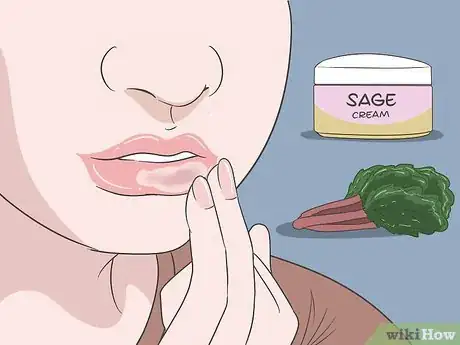
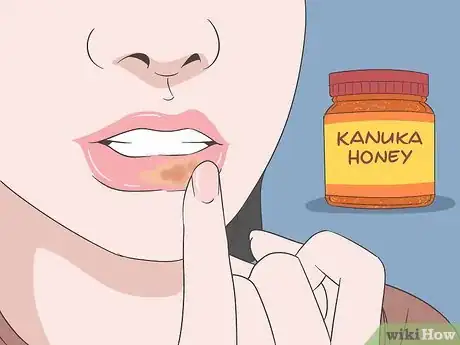
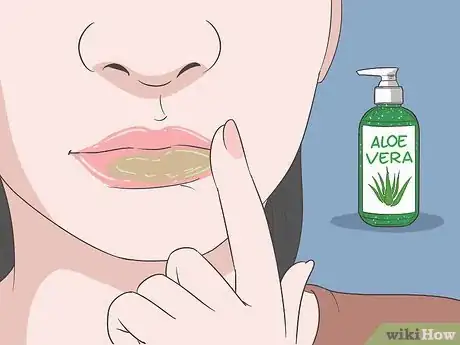
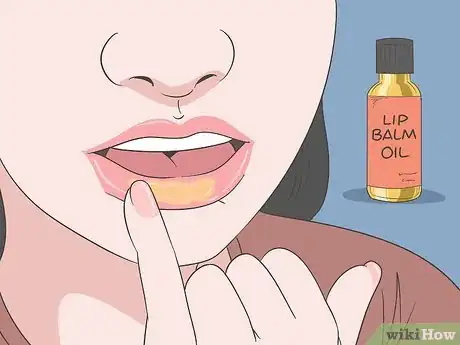
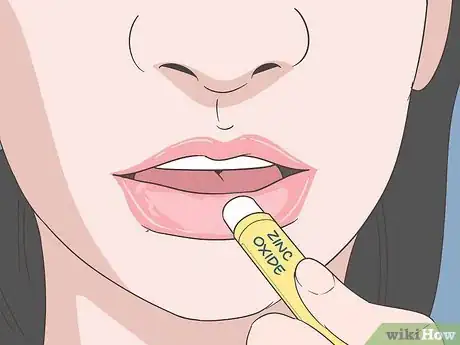
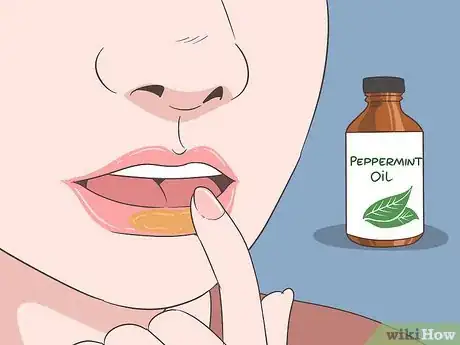
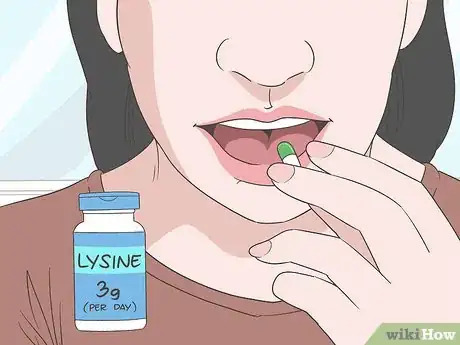
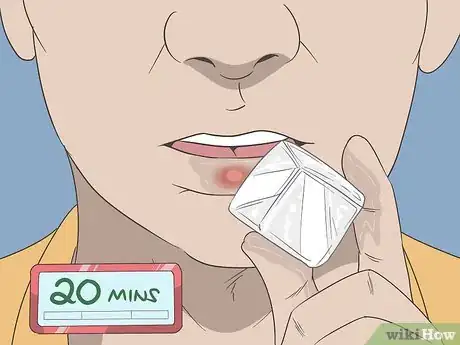
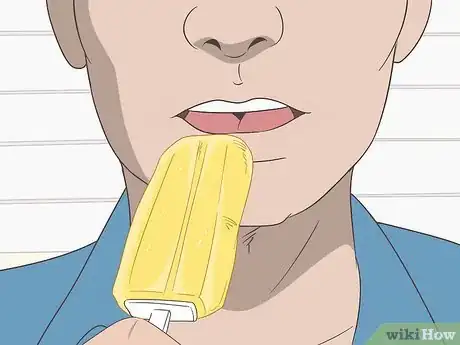
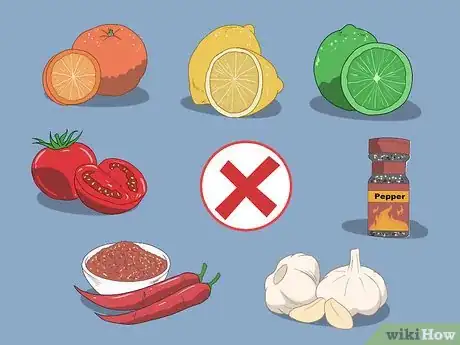
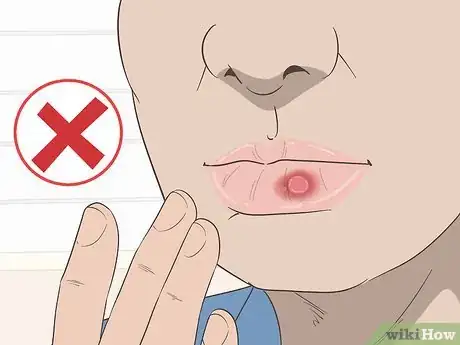
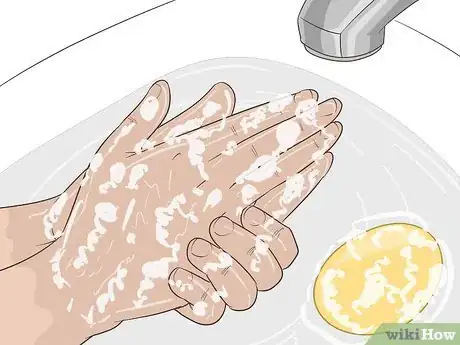
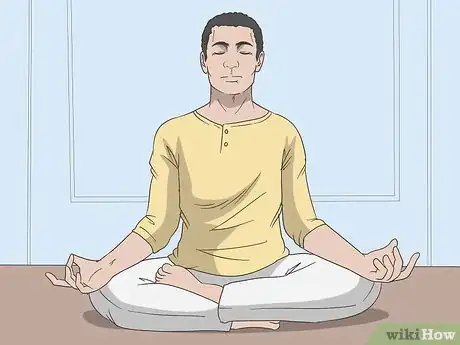
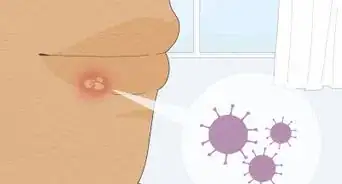
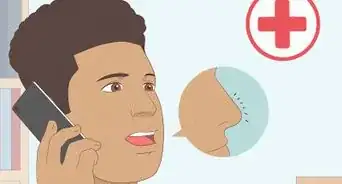




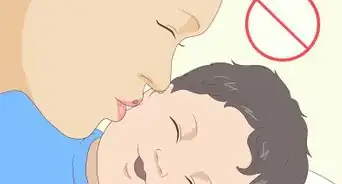

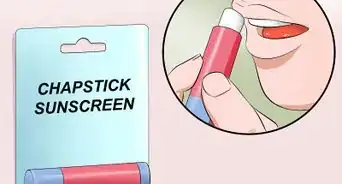
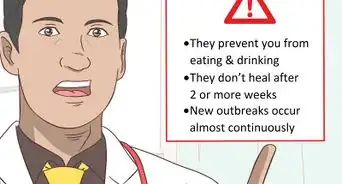

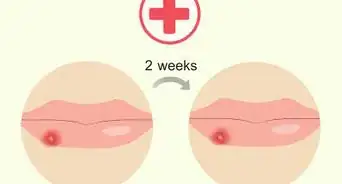










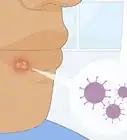
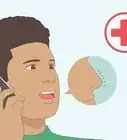





































Medical Disclaimer
The content of this article is not intended to be a substitute for professional medical advice, examination, diagnosis, or treatment. You should always contact your doctor or other qualified healthcare professional before starting, changing, or stopping any kind of health treatment.
Read More...